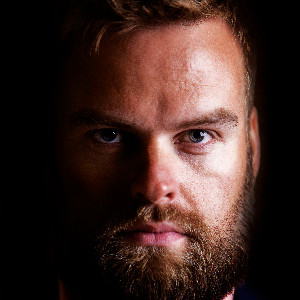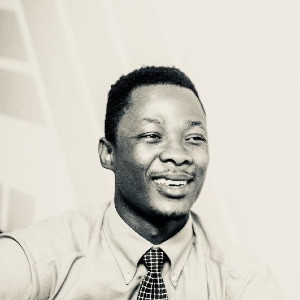To start my case interview preparation, I read some standard references and now I'm beginning to practice cases with peers. Usually, I'm able to identify the type of respective case and to solve it quite well, but my answers are not very structured. The problem is that I often remember only a small piece of the relevant framework which makes it difficult for me to stay structured. Sometimes, I mix several frameworks which makes it even more difficult to stay organized. What do you think is the best way to practice the application of frameworks and to become organized and structured?
What is the best way to learn frameworks for my case interview?


Narue,
You asked about how to best learn frameworks - great question, one that applicants often ask themselves.
When I was in your shoes, I also tried to learn a ton of frameworks ('Case in Point' from Marc Consentino anyone?). Ultimately, like you, I found that they were often confusing and didn't necessarily apply to the case I had to do. Worse, I found learning these frameworks a terrible use of my time. What does a framework really have to do? Basically, 3 things:
First, be MECE (Mutually Exclusive, Collectively Exhaustive); Second, help you go through the case in a structure and methodical way to not only allow you find the best answer; Third, convince your interviewer that your success is repeatable, and that you will crack this case and the next and the next.
Back when I was prepping for my BCG interview, I ended up falling back on just two frameworks, which I'd then tweak to fit the actual case: First, a version of the profitability model (Profit = Revenue - Cost, and Revenue = Price x Quantity); Second, a basic version of (Product, Price, Client, Competition, Company). Are these 2 frameworks optimal in every instance? No, they are not. Did they do the trick? I have used them in the 10+ practice cases with former BCGers, as well as in my 5 BCG cases... and I got in, so there's that :) I would even argue that every case can be solved by using either or both of these frameworks. Learn them, keep them in your back-pocket and be ready to use them. If you find a better one, great! But I'd rather you started with an "ok" framework and focused on solving the problem than spending 30 seconds at the beginning of the case to find the "perfect" framework, failed, and found yourself having to think on the fly as your start the solving process. At the end of the day though, remember a framework is just a tool. Good luck!

Heather,
Your question: "Would you mind explaining your second framework: Product, Price, Client, Competition, Company. Could you please share the types of questions you would ask around each part of the framework to unpack it further?"
My response: This is the part where you make the sausage! questions will be highly case-dependent, but could include:
- Product -> what products are we selling?
- Price -> how do our prices compare to market? over time?
- Client -> who are the clients? location / size / behavior / ...
- Competition -> who is the competition? What is their strengths / weaknesses?
- Company -> How do we differentiate from the others? What can we change internally?
Broad question, so my answer isn't very specific sorry. If you asked me something like this in a case, I'd say you were fishing for information :)

You often hear in conversations about structuing case interviews that you should not use standard business frameworks and concepts because they are too simple, and because every interviewer knows them anyway. It is most definitely true that you can't crack a realistic interview case by relying solely on standardized frameworks - but all those business frameworks and concepts are extremely helpful templates which you can put into your toolbox and use them (if not to the full extent, at least partly) when appropriate. Therefore such a standard business framework is just a tool - and the tool itself is rarely good or bad, it mainly depends on how and for which purpose you use it. I recently made a small survery among 120 of my coaching candidates, and roughly 9 out of 10 candidates say that their single largest issue in solving case interviews is getting the structure right. So this clearly is a huge pain point for case interview candidates, so it's definitely worth looking more closely at this matter. And in addition you might have heard the term "ABS" (Always Be Structured) - even though McKinsey is the most pickiest one when it comes to structure, all top tier consulting firms have a very strong focus on it. For our discussion, let's distinguish 2 parts of a typical case interview where frameworks might apply:
1) Beginning of the case interview
This is when you typically need to develop an overall structure on how you want to tackle this case. Interviewers often ask something like "What are the issues you need to consider here?" or "Let's assume you are the project manager of this consulting assignment - which areas would you like to investigate?". For this area of the case interview, I can at least agree to a certain extent with the existing answers to this topic. It is highly unlikely that you will be able for fit a realistic case interview question into a standard framework - if it would be that easy, nearly all candidates would make it into the top management consulting firms, and/or clients could solve their business problems without paying millions of dollars to consulting firms by simply applying a standardized framework. So, whatever your approach here will be, it needs to be very flexible because you will need to adapt it to a huge extent to your specific, individual interview question. And yes, it is your approach which needs to be flexible to make it fit to the case question, and not the other way round.
Approach #1: Get your hands on Victor Cheng's Case Interview Frameworks slides. In addition it is worth reading Victor Cheng's approach on case interview frameworks on his website.
Approach #2: Based on your case interview experience (i.e. having solved dozens of case interviews and having read through even much more of them) try to develop the first level of your case interview structure (or in other words, the main areas or buckets you want to investigate) 100% individually from scratch. Whatever approach you are using, this will mainly get you to the first level of your structure only. However, this first level will certainly be not enough to impress your interviewers - depending on the concrete case question, it is usually favored to have at least two levels of your structure, if not even three. And exactly for this second and third level of your structure, knowing the most common business frameworks and concepts is extremely helpful to all candidates. It is just so much easier to further structuring your main buckets from the first level if you don't have to start from scratch, but can apply existing frameworks and concepts. And even though you might just be able to use maybe 60% or 80% of a framework and need to adapt it to make it fit to the specific question, you are nevertheless already far ahead than if you would need to develop all that from scratch. Given the high mental pressure and time pressure in a consulting case interview, it is extremely difficult even for the best candidates to come up with the right issues, and at the same time remaining structured in a MECE way (mutually exclusive, collectively exhaustive) - this is just another reason highlighting the advantage of knowing the most important business frameworks and concepts, as they will not only help you to come up with a structure, but keeping it MECE and saving time at the same time.
2) Answering specific questions in later stages of the case interview
For answering specific questions sometime later in the interview, it is as important to remain structured in whatever you say as in the beginning of your case. Sometimes it might be well enough to use internal vs. external, short-term vs. long-term, pro vs. contra and similar basic structures, but more often than not this will not differentiate you from other candidates (don't forget - merely solving a case is usually not enough, you need to impress your interviewer by clearly standing out from the crowd of other applicants). Also here, knowing standardized business frameworks and concepts comes in very handy. As opposed to the overall case interview question at the beginning, most questions later in the interview are much more focused and narrow - therefore chances are higher that you can use a standardized business framework to a very large extent just as it is to answer the question.
I can just say from much more than 1,000+ case interview coachings over the last couple of years that a lot of otherwise very strong candidates would struggle answering this kind of more specific questions without knowing any standardized business frameworks - because it is still incredibly difficult to come up with a correct answer, and at the same time being MECE again in a tense interview situation! If you want to know what are the most important business frameworks and concepts which are relevant for consulting case interviews, have a look at one of my books focusing particularly on this topic: http://www.consulting-case-interviews.com/case-interview-frameworks. In addition to giving you a broad range of commonly used frameworks, I also put a strong focus on how to actually implement them step-by-step (you would be surprised how many candidates have at least a basic knowledge about the frameworks, but don't have a clue on how to actually implement them systematically in real life!). (And yes, I am 100% sure this approach works - there is a reason why some of my coaching candidates received their McKinsey offers directly after their first 3 case + PEI interviews, without even having to go through the final interview round)

To answer your questions:
- "in depth study of the frameworks is necessary at all?" This depends on your own personal understanding and comfort with the underlying concepts of these frameworks. Please remember that frameworks are "organized" collections of the basic business concepts that you should know in order to solve a case. So, for instance, if you are not comfortable with the basic cost structure of a company, what belies fixed and variable costs, what does it mean when a company is more fixed cost or variable cost oriented... then it is best to dig deeper into that concept.
- "Is it just enough to read through them and try to gain a high level conceputal understanding and work from there?" It depends on the impression that you want to convey during the case interview. Remember: case cracking is about being consistent and organized in your thinking process and frameworks offer a first step in that direction. Reading through them won't be enough (especially if you're aiming for MBBs) - you need to at least be extremely comfortable with their basic structure and the frequent underlying questions that you need to ask.
- "how can I apply the framework during the interview without making it too obvious/seem like it was just memorized?" There are cases that are screaming "APPLY FRAMEWORK X" to be solved. Whereas others require a combination of two or more frameworks to be solved. The pitfall here is to blindly apply a given framework to all the cases that you can encounter. So, how can you apply frameworks without seeming having memorized them:
- Don't announce that you're going to be using a given framework - announce a structure instead
- Be comfortable about the concepts and questions underlying the framework so that you know which concept to apply/question to ask in the case (this ties in with your two previous questions)
- Unless the case in question is extremely straightforward and obvious, rarely will you need ONE framework to solve a case - so as you go through the case, your initial structure (which is based off the initial framework you've used) will change as you're given data (and that change is brought upon by the other frameworks that you know).
Hope that helped.
In practice you will never want to use a framework in a case, with the arguable exception of a mathematical equation like Profit = Revenue - Costs. It can be interesting to read up on the likes of Porters' Five Forces to give you ideas (who else thinks about supplier power?), but case interview prep guides often over-exaggerate their significance. Interviews were different 20-30 years ago, and not all the guides have caught up.
What you instead should be doing is learning how to structure problems, which I'd break down into two main types:
"Quantitative" problems: Not necessarily only where you have numbers, but wherever you can break a problem down into mathematical drivers. For example, the revenue of a sandwich shop is always the number of customers x their average spend.
"Conceptual" problems: Is it a good idea for a company to go into x new market? What should the new CEO focus on? What would it take for company x to be the Uber of whatever?
Learn to identify what kind of question you're being asked and then practice a bit of both.
Hi Guennael, I thought your answer to Narue was great. Would you mind explaining your second framework: Product, Price, Client, Competition, Company. Could you please share the types of questions you would ask around each part of the framework to unpack it further? Kind regards, Heather
Hi Guennael, Thank you so much for your amazing advice. I will definitely take it into account for my practice.

The best way to learn frameworks for your case interview is NOT to learn frameworks but to learn how to build one on your own. That is the hallmark of a smart consultant.
Building custom frameworks for your a problem is not hard when you compare it to the cost of having to first cram tonnes of frameworks, not to mention the risk of force-fitting a memorized framework into a problem that is not it's fit. And if by some spin of luck, you do solve it, the question is this: will you rely on luck all the rest of your consulting career?
To learn how to build your own frameworks, start with the basics of estimations, then move to brainstorm. Once you get a hang of those two, you have would have built for yourself the solid foundation for building your own frameworks. You could learn more about this by listening to the "Case Interview and Management Consulting" podcast, anywhere you get your podcast from.
Cheers!


















